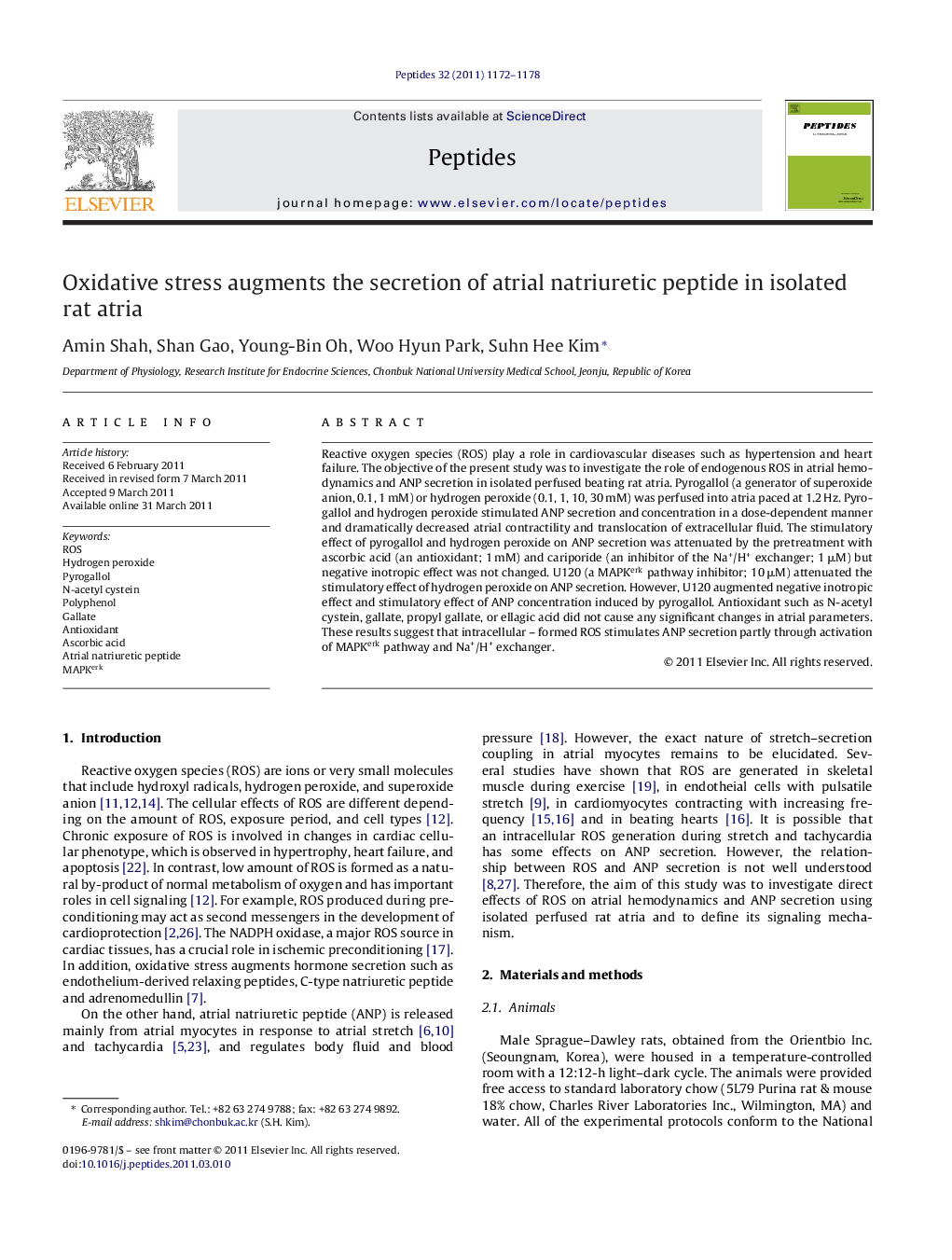| کد مقاله | کد نشریه | سال انتشار | مقاله انگلیسی | نسخه تمام متن |
|---|---|---|---|---|
| 2006437 | 1066341 | 2011 | 7 صفحه PDF | دانلود رایگان |

Reactive oxygen species (ROS) play a role in cardiovascular diseases such as hypertension and heart failure. The objective of the present study was to investigate the role of endogenous ROS in atrial hemodynamics and ANP secretion in isolated perfused beating rat atria. Pyrogallol (a generator of superoxide anion, 0.1, 1 mM) or hydrogen peroxide (0.1, 1, 10, 30 mM) was perfused into atria paced at 1.2 Hz. Pyrogallol and hydrogen peroxide stimulated ANP secretion and concentration in a dose-dependent manner and dramatically decreased atrial contractility and translocation of extracellular fluid. The stimulatory effect of pyrogallol and hydrogen peroxide on ANP secretion was attenuated by the pretreatment with ascorbic acid (an antioxidant; 1 mM) and cariporide (an inhibitor of the Na+/H+ exchanger; 1 μM) but negative inotropic effect was not changed. U120 (a MAPKerk pathway inhibitor; 10 μM) attenuated the stimulatory effect of hydrogen peroxide on ANP secretion. However, U120 augmented negative inotropic effect and stimulatory effect of ANP concentration induced by pyrogallol. Antioxidant such as N-acetyl cystein, gallate, propyl gallate, or ellagic acid did not cause any significant changes in atrial parameters. These results suggest that intracellular – formed ROS stimulates ANP secretion partly through activation of MAPKerk pathway and Na+/H+ exchanger.
► Pyrogallol and H2O2 stimulated ANP secretion and decreased atrial contractility.
► Pretreatment with ascorbic acid and cariporide attenuated the stimulatory effect of pyrogallol and H2O2 on ANP secretion.
► Antioxidant did not cause any changes in atrial parameters.
► Intracellular – formed ROS stimulates ANP secretion partly through MAPKerk pathway and Na+/H+ exchanger.
Journal: Peptides - Volume 32, Issue 6, June 2011, Pages 1172–1178